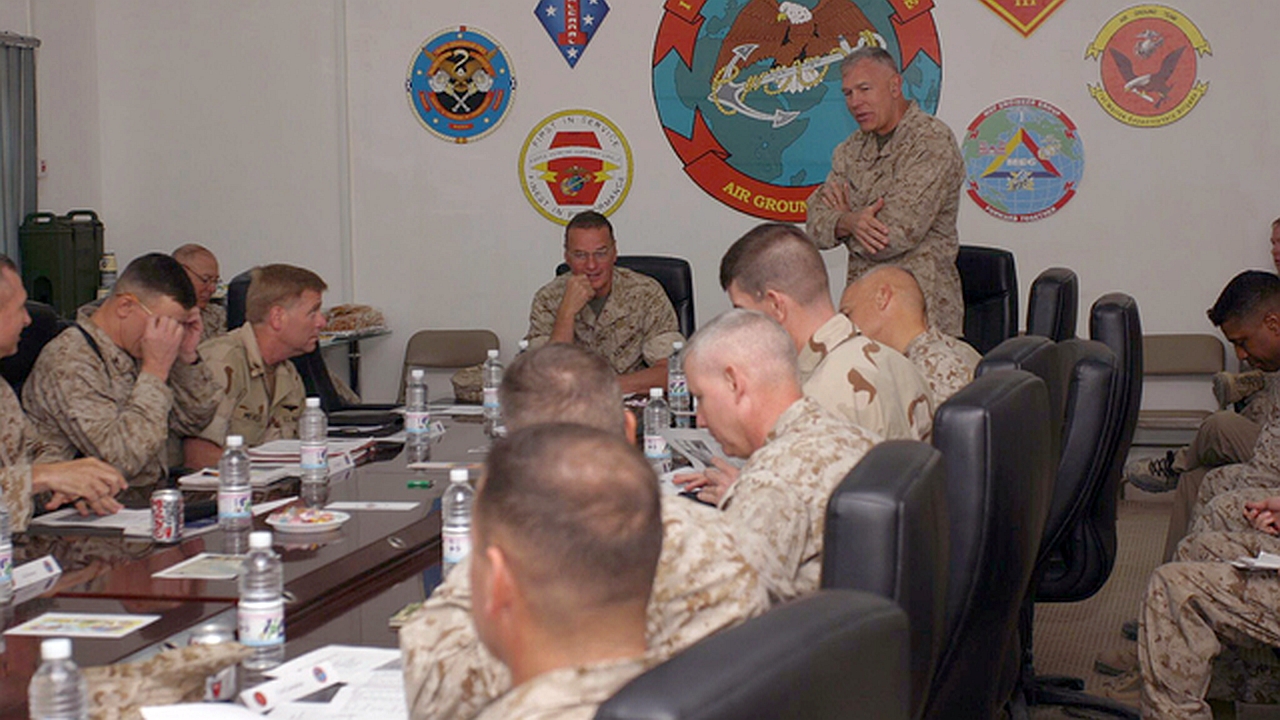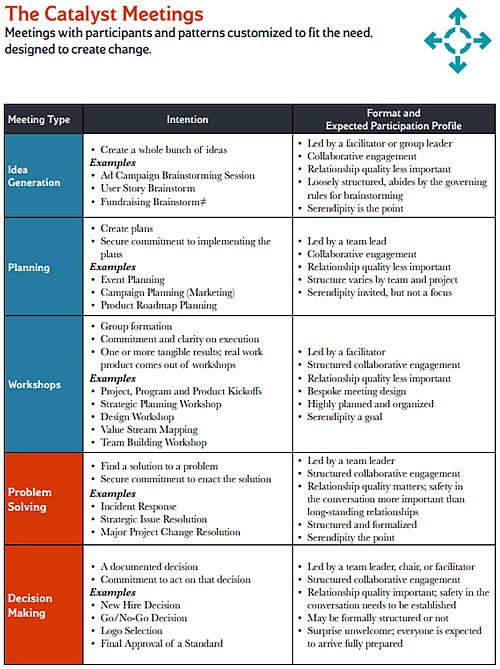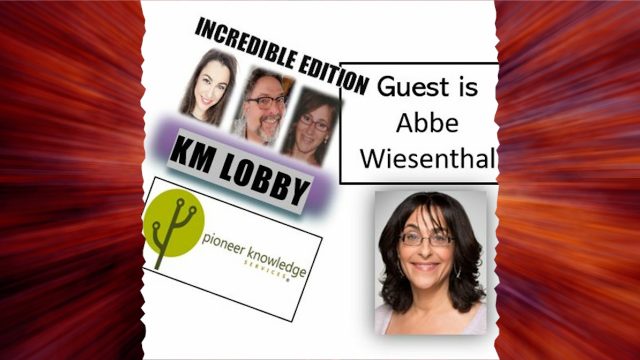
Organization Management Rhythm (part 1.4): The Catalyst Meetings
This article is part 1.4 of a series of articles on Organization Management Rhythm.
The Catalyst Meetings are scheduled as needed and with whom is best suited for achieving the goals. This could include creating a team or a group.
1. Idea Generations – Brain storming sessions, New Ideas
a. Questions answered
i. What are all the ideas for this we can think of?
b. Purpose
i. Generate a large number of ideas
c. Work outcomes
i. New ideas to seed new efforts
ii. What is possible in the organization
iii. Groups accepted boundaries
d. Human outcomes
i. Excitement to be part of something new
ii. Change from day to day routing
iii. New perspective/broaden thinking
iv. Inspiration
2. Planning – Project, Campaign, Event
a. Questions answered
i. Given the new information what is our plan
ii. Who is responsible
b. Purpose
i. Create plans
ii. Secure commitment and implantation of the plan
c. Work outcomes
i. Clarity about roles and responsibilities
ii. Identifies needs
iii. Create awareness of what is not known
d. Human outcomes
i. Job scope
ii. How to coordinate with ours
iii. Courses of action to achieve end goal
3. Workshops – Kickoffs, Design of Workshop, Team Building
a. Questions answered
i. Lots of questions to answer and a time period to do so
b. Purpose
i. Focus on and complete one or more tasks
c. Work outcomes
i. Group formation and identity
ii. Clarity and commitment on execution
iii. Tangible results
d. Human outcomes
i. Create relationships
ii. Perspective into other team members
iii. New knowledge
4. Problem Solving – Incident Response, Strategic Issue, Major Project Change
a. Questions answered
i. What do we know about the problem?
ii. What are our options?
iii. How are we going to address it?
b. Purpose
i. Find a solution
ii. Secure commitment
c. Work outcomes
i. Courses of action to solution
ii. Clarify about job roles
iii. Additional meetings
d. Human outcomes
i. Understanding of issue
ii. Path forward
iii. Support for the issue
5. Decision Making – New Hire, Go/No Go Decision
a. Questions answered
i. Which course of action to choose?
b. Purpose
i. Decide between courses of action
ii. Secure commitment to the decision
c. Work outcomes
i. Documented decision
ii. Clarify next steps
iii. Document and share the message about the course of action
d. Human outcomes
i. Understanding of the courses of actions
ii. Awareness of rest of the teams issues with the outcome
iii. Opinions and concerns were considered

Next part (part 1.5): The Learn and Influence Meetings.
Acknowledgements: Thank you to Tomi Antill, Keith Davis, Elise Keith from Lucid Meetings, JFHQ-C Leadership, and Kendra Albright from Kent State University, without whose support this series would not have been possible.
Header image source: U.S. National Archives, Public Domain.






